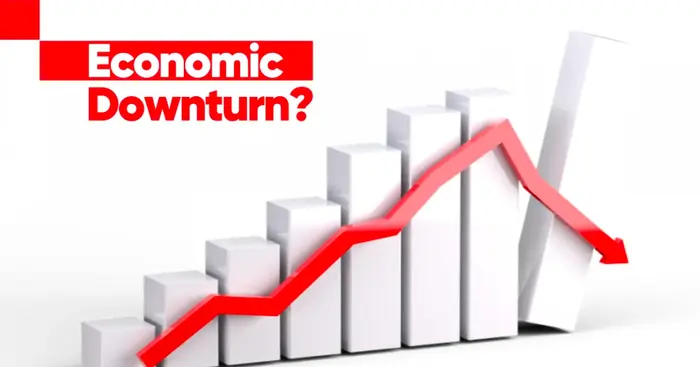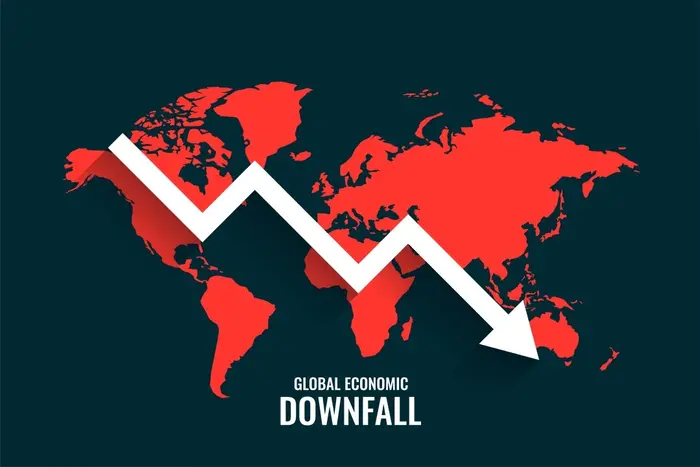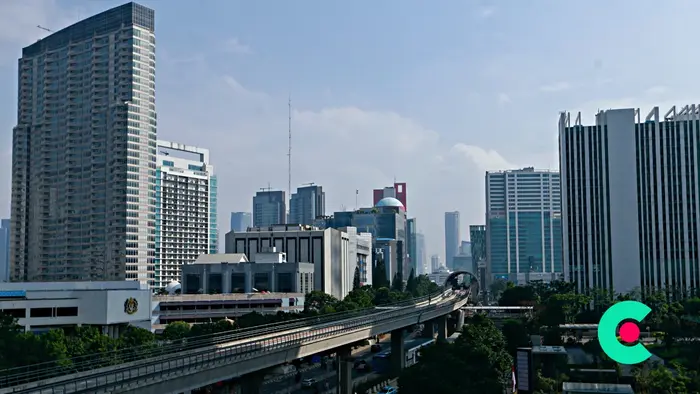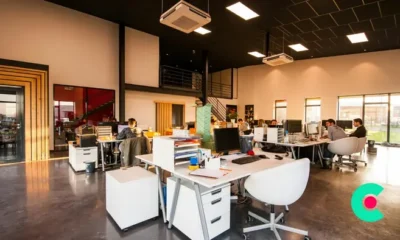Politics
United Nations States World Economy to Slowdown, What’s the Reason?

The world economy to slowdown becomes a concern for all countries around the world. Of course, this is a serious thing as the global economy has the biggest impact on every sector. In this article, we will see why United Nations states that the world economy to slowdown.
Factors Behind Global Economy Downfall

The United Nations organization has highlighted a worrying issue: the global economic slowdown. This created a wave of concern among economists and market players around the world. In identifying the reasons behind these predictions, the United Nations cited several key factors influencing the world economy to slowdown today.
1. Trade War
One of the main factors emphasized by the United Nations is increasing international trade tensions. The trade war between major countries, especially the United States and China, has triggered high import tariffs and market United Nations certainty. This hampers global trade flows and suppresses economic growth in various regions.
2. Political Certainty
Political certainty, especially related to geopolitical tensions and instability in foreign policy, is also a significant factor in forecasting a world economy to slowdown. Regional conflicts, such as those in the Middle East or Ukraine, as well as Pun certainty regarding Brexit, all place additional pressure on the global economy.
3. Slowing China’s Growth
As one of the main drivers of global economic growth, China’s economic slowdown has had a significant impact. The United Nations notes that China’s economic growth has slowed in recent years, affecting the exports of its trading partner countries and raising concerns about its impact on the global economy as a whole.
4. Monetary Policy
Monetary policies taken by central banks in various countries also play an important role in forecasting the direction of the world economy to slowdown. Although stimulus efforts have been made to encourage growth, excessive or uncoordinated policies can result in market instability and reduce investor confidence.
5. Environmental Crisis
Environmental factors are increasingly becoming a concern in world economy to slowdown discussions. The threat of climate change, natural resource shortages, and environmental pollution can all disrupt economic activity and cause long-term uncertainty in global economic growth projections.
6. Economic Inequality
Increasing world economy to slowdown, both within countries and between countries, is also a concern. Uneven economic growth can create social and political tensions, and hinder long-term growth by reducing consumer purchasing power and hindering social mobility.
7. Demographics
Demographic changes, such as population aging in some developed countries and rapid population growth in developing countries, can have a significant impact on world economy structure and market demand. These changes require adjustments to economic policies and strategies to address the associated challenges.
The Impact Of The World Economy to Slowdown According to the United Nations
According to the United Nations, the impact of the world economy to slowdown is very broad and varied. This organization has identified several main impacts that could occur due to a slowdown in world economic growth:
1. Employment and Job Instability
World economy slowdowns tend to lead to increased unemployment rates as companies reduce production and stretch budgets. This has the potential to create instability in the labor market, increase pressure on workers, and reduce society’s overall purchasing power.
2. Declining Investment
Investors tend to be more cautious in a slowing world economy climate due to higher investment risks and low return prospects. As a result, investment in new projects and business development may decline, hindering long-term growth and innovation.
3. Financial Instability
A world economy slowdown can create instability in the financial sector, including stock market volatility, falling currency exchange rates, and the inability of companies to pay debts. This could threaten the stability of the global financial system and worsen the economic crisis if not handled appropriately.
4. Declining Global Demand
Global demand for goods and services also tends to decline during periods of world economy slowdown. This can be a big problem for countries that depend on exports as their main source of income. A decline in demand could hamper economic growth and worsen trade imbalances.
5. Increased Inequality
World economy to slowdowns often exacerbate economic inequality because people with lower incomes are more vulnerable to its negative consequences. Rising inequality can create social tensions, threaten political stability, and hinder long-term social and economic development.
6. Threats of Poverty and Food Insecurity
A world economy to slowdown can increase the risk of poverty and food insecurity, especially in countries dependent on agriculture and the informal sector. Declining incomes and rising prices of basic goods can worsen the living conditions of vulnerable communities.
7. Decline in Investment in Sustainable Development
A world economy to slowdown tends to divert attention from investment in sustainable development and climate change mitigation. This can slow progress towards sustainable development goals and increase the risk of long-term environmental damage.
Through this explanation, the United Nations highlights the importance of coordinative and proactive action in overcoming the negative economic impacts of slowing global economic growth, with a focus on sustainability, inclusion, and equitable development.
Taking these factors into account and considering the very serious impacts, the United Nations concluded that the prospects for global economic growth indeed face significant challenges. To overcome this economic slowdown, international cooperation and appropriate policies are needed so that the world economy to slowdown can recover and develop sustainably.
United Nations added that according to its predictions, the global economy could slow down but pick up slowly as global markets pick up. Such as increasing buying and selling power throughout the world.
“In short, the world is struggling to return to the annual average of 3.0% from 2000 to 2019, which represents years of below-average growth,” said the United Nations Director of State Department’s Division of Economic Analysis and Policy. and Social Shantanu Mukherjee on the best engaging communities page, Monday (March, 18).
Meanwhile, he assessed that the short-term growth prospects in many developing countries, especially in East Asia, and West Asia, plus America are also deteriorating due to tighter financial conditions, shrinking fiscal space and sluggish external demand.
Read Also: Prabowo Officially Crowned Indonesia’s Oldest President

Politics
The Future of Indonesia Economy and Strength of USD

The weakening of the Rupiah always becomes bad news for the future of Indonesia economy. Even though this is not the first time, it can do a huge damage to the local economy especially during high inflation right now.
According to the economists in Indonesia, they already warn that the recent weakening of the Rupiah against the USD could put more pressure on people’s purchasing power, along with the high prices of imported goods.
Which Sectors will be Affected for the future of Indonesia economy?
The strengthening of the dollar will clearly affect the future of Indonesia economy. This is because this country is still quite dependent on imports. If the Rupiah exchange rate weakens, various sectors that depend on imports will suffer major losses.
So, what are the sectors that will be most affected by these economic conditions? The following is a list and explanation.
1. Foods
This one is actually quite ironic since the future of Indonesia economy still relies on imports to meet domestic needs. Most of the imported foods are actually staple foods like rice, flour, sugar, beans, onion, and etc. If the weakening of the Rupiah becomes worse, the government needs to make proper regulations to keep the price of basic necessities.
Just like what we explain above, with this condition imported goods like food will become more expensive and make low income families unable to afford it. This can also cause a chain effect because with the rise of food prices, the prices of other necessities will also rise.
2. Manufacture Industry
You may have heard about this word but do you know what manufacturing really means for the future of Indonesia economy? Manufacturing is a branch of industry that operates equipment, machines and labor in a process medium to process raw materials, spare parts and other components to be produced into finished goods that have selling value.
Even though Indonesia is rich with natural resources, this country mainly produces and exports raw material. To produce better products, they still depend heavily on imported materials. In fact, it is not uncommon for them to export raw materials and import finished products.
This is certainly very unfortunate considering that the Indonesian manufacturing sector is actually able to compete with foreign products. With the strengthening of the dollar, it will be difficult for the local manufacturing industry to survive because production costs will increase significantly while income remains the same.
3. Pharmacy
For the future of Indonesia economy, It is not a secret that most of the raw materials that are used for the pharmaceutical industry in Indonesia are mostly imported. Even according to some experts, the ratio of imported material in the industry has already reached 90%.
Just like the food sector, Indonesian pharmaceuticals, which should be an important sector, are still dependent on imports. In fact, this industry has a big role in the national health system.
If the price of imported materials increases, the price of medicines will also increase drastically. This is certainly dangerous because it could burden the state’s health insurance budget.
4. Electronic
Do you know if Indonesia is one of the biggest smartphone markets in the world? With a population around 270 million, this country is a massive potential market for electronic devices. Unfortunately, Indonesia may be seen only as a consumer and not producer of these electronic goods.
Why? Because the majority of the products are imported, mainly from China. The future of Indonesia economy actually has few electronic and technology companies but most of them also still rely on imported parts. So, if the dollar rises, the price of these products will get more and more expensive.
5. Energy
For information, even though Indonesia is able to produce its own energy like oil, gas, and electricity, it is not enough to meet domestic consumption. Because of this, Indonesia still has to import large quantities of oil from other countries to maintain its energy needs.
The future of Indonesia economy has actually started to reduce the amount of imported energy but the number is still very high. And for information, almost the majority of the imported energy will be used as subsidies for its people.
This type of subsidies actually has become the subject of debate among officials and the public because the numbers are very large and continue to burden the state budget along with the strengthening of the dollar.
The following is some information regarding the sectors most affected by the rise in the dollar. It is necessary to understand that this problem is actually quite serious because it is related to the future of Indonesia economy sustainability. So, let’s pray that the Indonesian government can handle this problem as soon as possible.
Read Also: Indonesia Maju 2045, Will This Program Become Possible?
Politics
Prabowo-Gibran’s First 100 Day Programs has been Prepared

After we discuss that Prabowo expects to make Indonesia as a developed country, there will be a question, so what are of his first 100 day programs? Every country in this world has a different culture and different way to show something, including in government. For such a big and populated country like Indonesia, it can be a little bit different compared to the rest of the world.
Just like other democratic countries, Indonesia’s president and officials have a term of office for 5 years or 1 period. But, do you know if they also focus on the first 100 days during the leadership? This is actually more familiar with the president and other elite officials since they get more exposure than ordinary staff.
Prabowo-Gibran’s First 100 Day Programs
So, if the first 100 day programs are important, what about Indonesia’s future leader Prabowo-Gibran? What program will become their priority for the first 3 months of their leadership? Here is the list.
1. Free Lunch Program for Kids
During presidential debates, Prabowo-Gibran always focuses on this first 100 day programs. Even for the general public, this free lunch program is like their trademark since they are the only candidates that propose this program.
For information, some parts of Indonesia, especially in remote and quite isolated areas, still battle with malnutrition cases. Ironically, the number of cases are quite high and are starting to raise concern among the general public during the high inflation.
Even though this program still stir controversies, we all know if the reason behind this program is very good and reasonable, to reduce the number of malnutrition in children.
2. Create Better and Affordable Healthcare
Indonesia might not be a developed country but it has quite good and organized healthcare. Even though it’s not perfect, it’s affordable so many people, especially from low income families can get better treatment.
One of the main problems in Indonesia healthcare actually comes from its infrastructure. As we explained before, many remote areas still struggle with malnutrition cases, this is actually the result of lack of proper facilities and healthcare workers.
Because of this first 100 day programs, Prabowo-Gibran already plans to give free medical treatment and build better hospitals with top facilities in every district in Indonesia.
3. Increase Agriculture
Indonesia also suffers from the rising price of staple food. This is actually ironic because in the past, this country was well known as an agricultural nation where they could meet their domestic needs and even export food to neighboring countries.
Due to the first 100 day programs, Prabowo-Gibran has plans to increase agriculture productivity with multiple methods. In the master plan, this program will start from a small to national scale.
4. Education
Beside stunting, Prabowo-Gibran also focuses on improving Indonesia education facilities. Just for your information, education infrastructure such as school, library, and etc in Indonesia is not equally distributed. Some areas, usually in the big cities in Java, have very good facilities meanwhile some (remote and isolated) areas have very poor and limited facilities.
As the first 100 day programs, the new leader has plans to build more integrated schools in many areas and renovate damaged schools so they can be used safely again.
5. Eradicate Poverty
Unfortunately, poverty is still one of the biggest problems in Indonesia. Even though this country already has multiple programs and regulations to eradicate poverty, the number of low income families seem to haven’t reduced significantly.
In the master plan, Prabowo-Gibran wants to continue President Jokowi’s social program to eradicate poverty in Indonesia. During the Jokowi era, Indonesia actually has few promising programs such as social welfare cards and business assistance for small entrepreneurs that will be continued by Probowo-Gibran.
6. Increase the Salaries of Civil Servants
This first 100 day programs actually became pro and cons to the general public and government. Why? Because for Indonesia, civil servants such as government staff, teachers, healthcare workers, police, and soldiers already have good and stable salaries.
Not to mention many of the civil servants still do not have good dedication and competence. This is the main reason why this plan is still controversial especially during the high inflation right now. The increased salary may cause the price of basic necessities like food to become more expensive than before.
7. Affordable Housing
Affordable housing has become one of the main necessities especially for the younger generation. Just like other millennials and Gen Z around the world, many Indonesians can’t afford a house because it’s too expensive. With this program, the government has plans to build affordable houses with low interest in different areas.
8. Increase GDP
For your information, taxes in Indonesia are quite high. But, in the future Prabowo still wants to establish a state revenue agency and increase GDP by 23%. With this plan, in the future there is a possibility of increasing taxes from certain sectors.
Those are the list of the first 100 day programs of Prabowo-Gibran’s leadership programs. All these programs above are listed on their official campaign website. We just hope that the plan runs smoothly and can be useful for the community.
Politics
Indonesia Sharia Economy under Prabowo’s New Regulation

We may be familiar with conventional economic systems but do you know what makes the sharia economy different? The economic system of sharia provides a compromise between capitalism and socialism. Therefore, the sharia economic system applies the principles of goodness from these two economic systems.
The Islamic economic system is a new industry that has successfully gained traction at the global level. If you look at the system, particularly Islamic finance, it is based on the principles of Islamic law (Shariah) and prohibits interest-based transactions, speculation and gambling. Islamic finance promotes risk sharing, ethical investment and social responsibility.
Indonesia’s Sharia Economy Master Plan
As a country with the biggest Muslim population in the world, Indonesia has enormous potential to develop the Islamic economy. This country has long been trying to improve its sharia economy and is starting to see significant developments especially during President Joko Widodo (Jokowi) era.
With this reason, the future president and vice president Prabowo Subianto–Gibran Rakabuming Raka are committed to continuing the sharia economic and optimizing sharia economics program of the era of President Jokowi as a new motor for economic growth in Indonesia.
During the previous presidential debate, Gibran also touched on the State of Global Islamic Economy (SGIE), an indicator in sharia economy issued by Dinar Standard. He explained that in developing sharia economics the government needs to know the achievements of various countries in the world in the field of sharia economics, each of which has its own parameters.
For your information, the President of the Republic of Indonesia, Joko Widodo launched the Indonesian Sharia Economic Master Plan 2019-2024 a few years ago at the Office of the Ministry of National Development Planning, Central Jakarta. The master plan recommends four main steps and strategies as breakthrough steps and acceleration of domestic sharia economy growth. Here is the list.
1. Halal Value Chain
An inventory and mapping of obstacles to sharia economy development needs to be carried out by evaluating previous targets and achievements. For example, the main mission was to make Indonesia the center of world halal producers. Unfortunately, there are two main issues to achieve this mission, such as Halal Industrial Area and halal certification.
Even though Halal industry area has been established, the level of occupancy is still an issue which has an impact on the lack of its activity. Therefore, the formation of halal industry areas to support the domestic halal industry has not had enough visible impact. Therefore, the involvement of stakeholders, especially the private sector in bringing in investors and bringing halal industry to life, is necessary.
The second issue is the acceleration of halal certification. According to the Indonesia official, the first step is to strengthen the halal value chain by focusing on sectors that are considered potential and highly competitive.
But, considering the fact it is necessary to reconsider and re-measure the targets and timelines that have been set by the government, especially the halal certification targets at the micro and small business level.
The main target set is to accelerate certification in the upstream and raw materials sectors because products at the small business level depend on these two sectors. If both have been certified, it will be easier for small private businesses to apply for a halal self-declaration and achieve the national halal certification target.
2. Sharia Finance
Strengthening the sharia financial sector with a master plan that was outlined in the previous master plan for Indonesian Sharia Financial Architecture (SFA) and refined into the master plan.
There is a need to pay attention to the development of the sharia financial sector as a driving force for the sharia economy. Programs to increase sharia financial market share should not be limited to sharia banking consolidation actions, but also to penetration and inclusion in the wider community.
Therefore, more than one large Islamic bank is needed to increase competitiveness in the industry so that the products and services offered to the public are more competitive and efficient. A few of the many issues above need to be paid attention to and included in the preparation of the second volume of Indonesian Sharia Economic Master Plan 2024-2029.
The preparation of the next master plan is the first step in maintaining the continuity of the vision and mission of Indonesian sharia economy in the previous plan. Therefore, this regulation needs to contain strategies and priority programs for sharia economic development in Indonesia for the next 5 years and become the main reference for sharia economic stakeholders.
3. Strengthening the Small, Local Business Owner
Indonesia is famous for its economic strength that is supported by small and medium scale local business. They are the reason why the country’s economy has survived multiple global crises.
Therefore, it is not surprising that the government makes local entrepreneurs a priority in the sharia economy master plan, especially making them the main driver of the halal value chain.
4. Strengthening the Digital Economy
With more than 270 million of population, Indonesia has become a new digital economy power not only in South East Asia but in Asia. Recently, online trading, especially e-commerce, has started to replace traditional trade in Indonesia.
The reasons why the governments want to focus on the digital economy especially trade (e-commerce, market place) and finance (financial technology) so that it can encourage and accelerate the achievement of other strategies.
Those are the following information regarding Indonesia’s estimated plans for the sharia economy in the hands of the elected president, Prabowo. Considering its massive potential, we only hope that future master plans will give even greater positive impact. So, let’s just wait for the results.
-

 Business3 weeks ago
Business3 weeks ago5 Profitable Digital Business Ideas, Increase Your Income!
-

 Business1 week ago
Business1 week agoWhat I Learned in My First Month of Running a Startup Accelerator
-

 Archives3 months ago
Archives3 months agoHow Can You Tell If An Angel Investor Is “real” Or “fake”?
-

 Business1 month ago
Business1 month agoIndividually Proficient, Collectively Efficient; Why Your First Hire Matters
-

 Business6 days ago
Business6 days ago6 Affordable Co Working Space around the Globe
-

 Archives1 month ago
Archives1 month agoHow Accelerators Make Money To Manage Operating Costs
-

 Archives3 months ago
Archives3 months agoHow To Present Your Traction Slide with 7 Samples
-

 Archives1 month ago
Archives1 month agoThe Reason Why #Startups Fail in India